The Adamah Farm
10 acres of fields, orchards, and pasture in Falls Village, CT.
Our diversified, regenerative farm includes rows of vegetables, agroforestry, pasture, compost production, and a mix of perennials
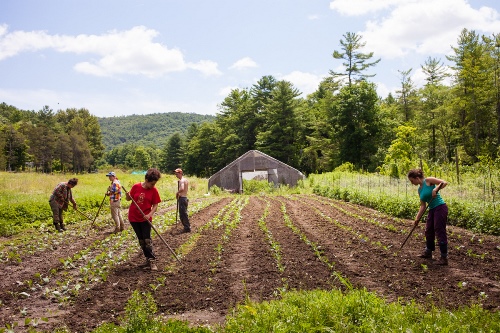
- Guests at Isabella Freedman Jewish Retreat Center get to eat our fresh produce, tour the fields, and meet the animals
- Fellows in the Adamah Farm Fellowship build community among the seedlings, fruit trees, chicken flock, and even the weeds.
- Members of the Farm CSA in Northwest Connecticut enjoy a fresh share of the harvest from June through November
- The Food Access Fund allows us to grow fresh produce for those experiencing food insecurity.
Farming Practices
The abundance and health of our harvests are interdependent with the abundance and health of the many diverse species on Beebe Hill; from the billions of microbes in the soil to the red-tailed hawks overhead.
We farm for soil health, for carbon storage in the ground, for beneficial insects, and for nutrient density. We farm with reverence for the wisdom of our Jewish ancestors, the Mahican people on whose unceded land we farm, and all the brilliant contemporary farmers in our region and beyond who have developed nonexploitive methods of feeding our communities.
We are certified organic but we go beyond the regulations to achieve regeneration of the soil and landscape. We are enrolled in the USDA’s Conservation Stewardship Program, have completed multiple conservation projects with the National Resource Conservation Service, and we have an active project under the USDA’s Sustainable Agriculture Research and Education program. Indicators of a healthy ecosystem have increased steadily on our farm over time including wildlife diversity, soil organic matter, and the vibrance of our Adamah community on the land.
Learn more about our faming practices below and/or in this blog post.
In this time of terrible calamity and danger, we are praying for peace. When we plant seeds, when we tend saplings, when we dump food waste on compost piles for chickens to eat and for microbes to transform into life-giving fertilizer, we do so in the hopes that our prayers for peace reverberate through the soil that connects us all across distance.
עֹשֶׂה שָׁלוֹם בִּמְרוֹמָיו הוּא יַעֲשֶׂה שָׁלוֹם
Oseh shalom bimromav hu ya’aseh shalom
Homemade Compost
Each day, we compost over 100 pounds of food scraps from the retreat center dining hall. Our compost pile feeds our flock of 50 laying hens and is used to feed the soil on our vegetable farm. Learn more about our compost yard here.
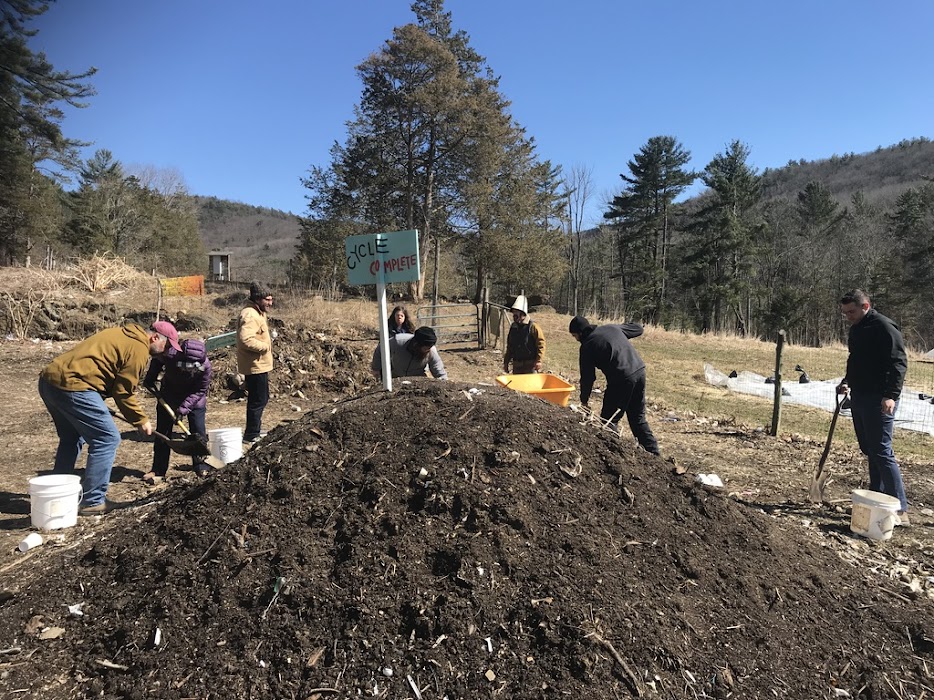
Educational Dairy
Our herd of 6 dairy goats is used to teach cheesemaking and feed the Isabella Freedman community. We do educational kosher slaughter (Shechitah) and make parchment (klaf) from goat skins.
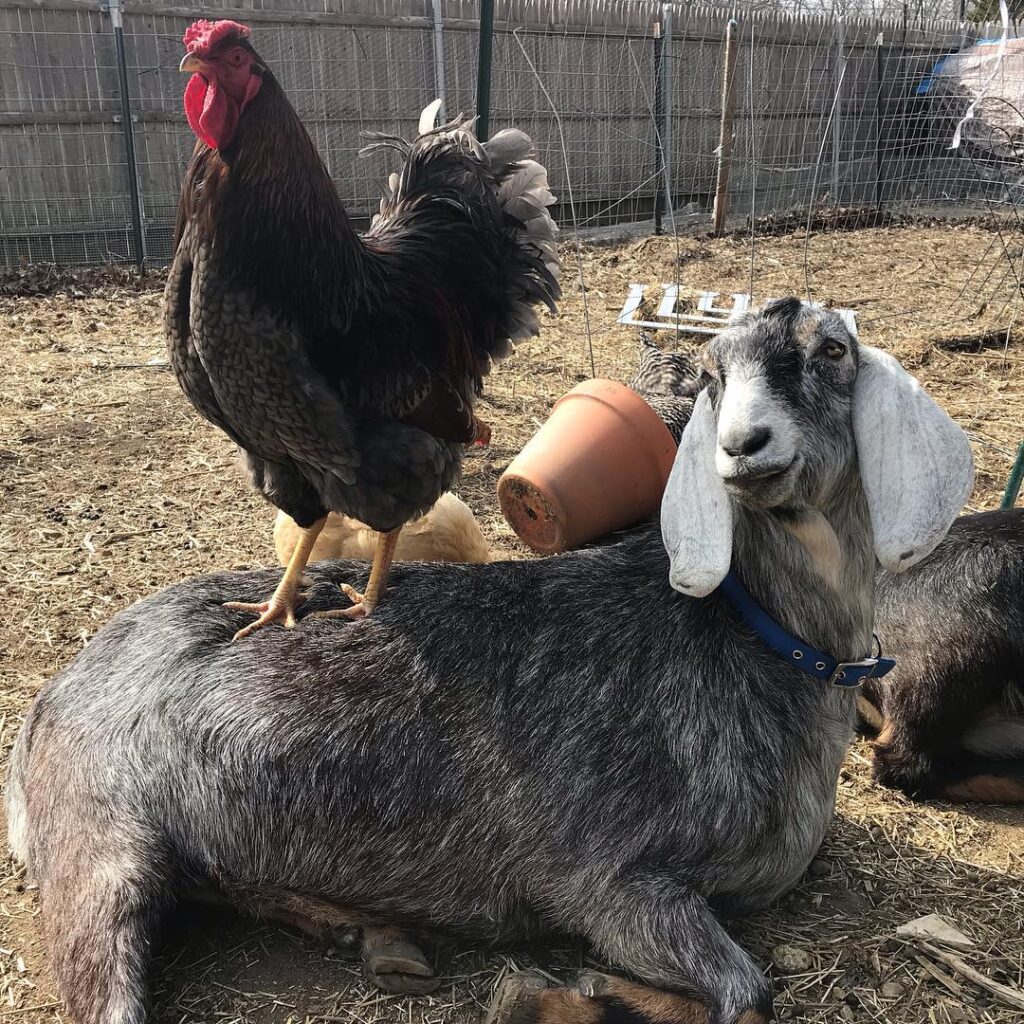
Value Added Products
We preserve some harvest and use the ancient art of lacto fermentation- a pickling method that simply uses salt. Our certified organic sauerkraut is alive & probiotic, and we make syrup from our own maple trees.
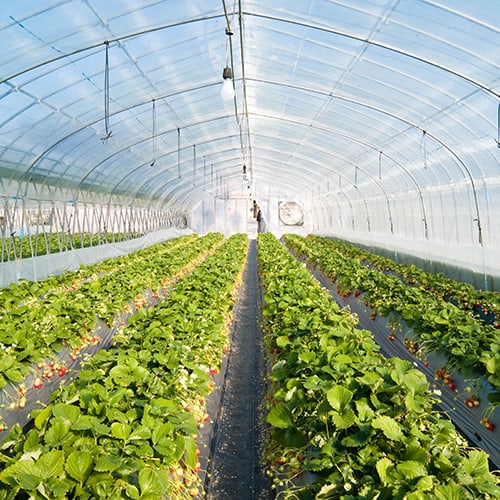
Food Access Fund
Everyone has a right to fresh healthy food but wealth inequality often makes freshness inaccessible to families struggling to pay bills. Food pantries are in desperate need of fresh produce donations.
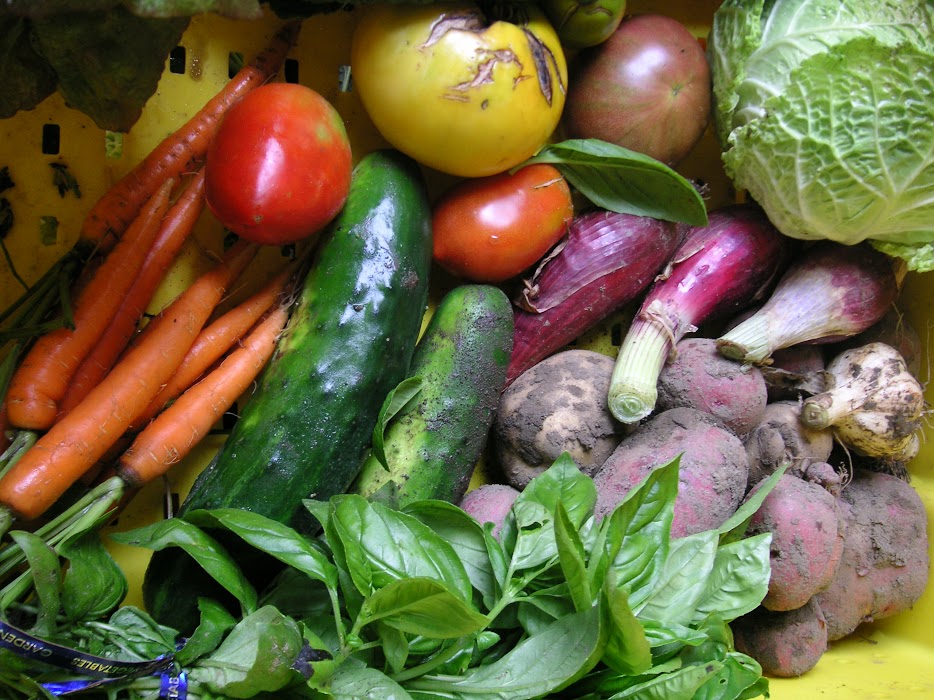
With the generous support of individuals and foundations including the Northwest Connecticut Community Foundation and Berkshire Taconic, we are able to grow fresh produce for those experiencing food insecurity. We work with the Corner Food Pantry in Salisbury, Friendly Hands Food Pantry in Torrington, Tuscan Brotherhood Homes in Hartford, and Vecinos Seguros in Lime Rock.
Until our society reforms the food system via policies that make regenerative farming more economically viable, our farming techniques simply yield higher-priced food than that harvested on farms who are not paying for externalities like polluted rivers and wells, worker exposure to toxins, and soil erosion.
We see the Food Access Fund as a critical part of building resilient food economies. Our approach to growing food is regenerative, community-based, accountable for the health of our soil and ecosystem, and nutrient-dense.
Creative solutions like Adamah’s Food Access Fund make the harvests from regenerative, community-based, ecologically-friendly farms accessible to everyone while maintaining farm economic viability.
Adamah Farm Staff
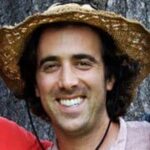
Shamu Sadeh
Managing Director of Education
Shamu is the co-founder of the Adamah Farm and Fellowship and has been taking people into the woods (Yeah Teva!) and on to the farm for 30 years. He loves leading morning prayers around the fire and schlepping goat fencing, mulch, or compost!
860.816.8973
Isabella Freedman
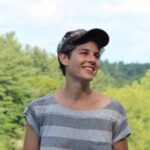
Janna Siller
Farm Director and Advocacy Coordinator
Janna leads the Adamah Farm crew in growing organic vegetables; teaches skills and food system context; and generates Jewish grassroots food advocacy opportunities. Physical work in the soil inspires her approach as a farmer, educator, and advocate.
860.816.8975
Isabella Freedman
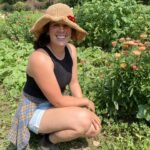
Luna Manela
Adamah Farm Fellowship Director
After working with the Adamah Farm Fellowship as a farm apprentice for two years, Luna is honored to be back! Chances are you’ll find her singing around a campfire, creating shtick, or marveling at the natural world’s many wonders.
860.318.7412
Isabella Freedman
News & Highlights
Donate to the Adamah Farm!
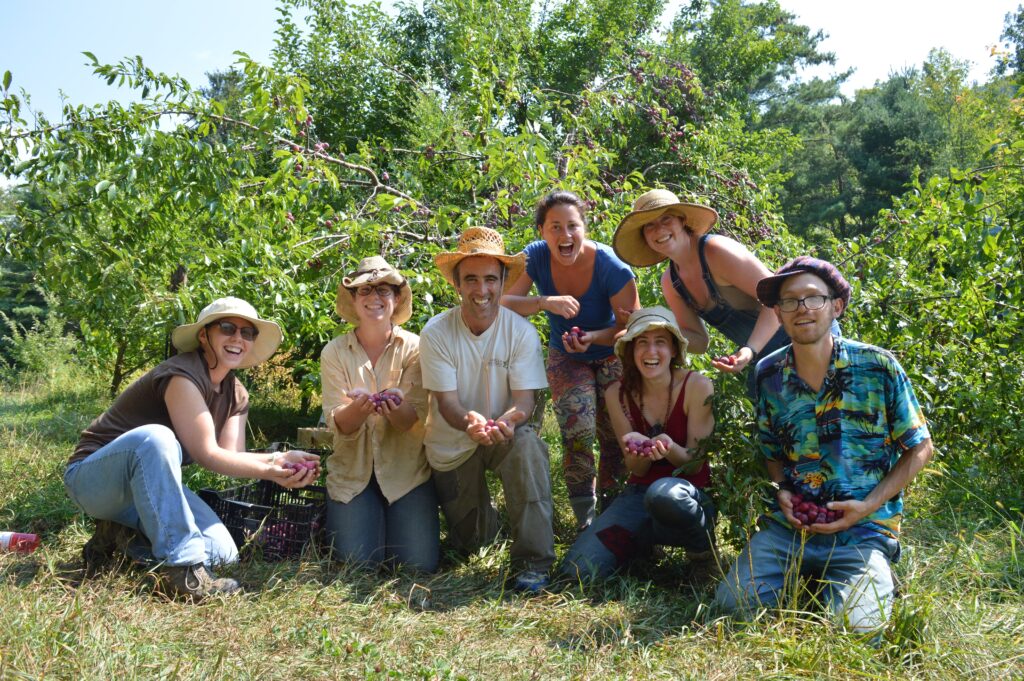
Adamah Farm Fellowship is a program of Adamah for college and post-college age people. An intentional Jewish community based at Isabella Freedman, Adamah Farm Fellowship cultivates the soil and the soul.
Our farmers learn sustainable farming, while strengthening identity and changing the world. Thank you for your gift!
More from the Adamah Farm
